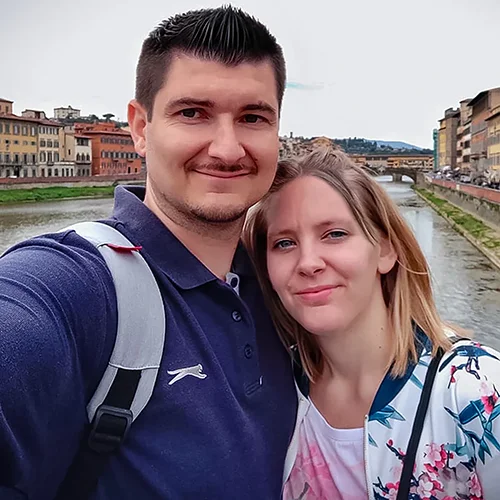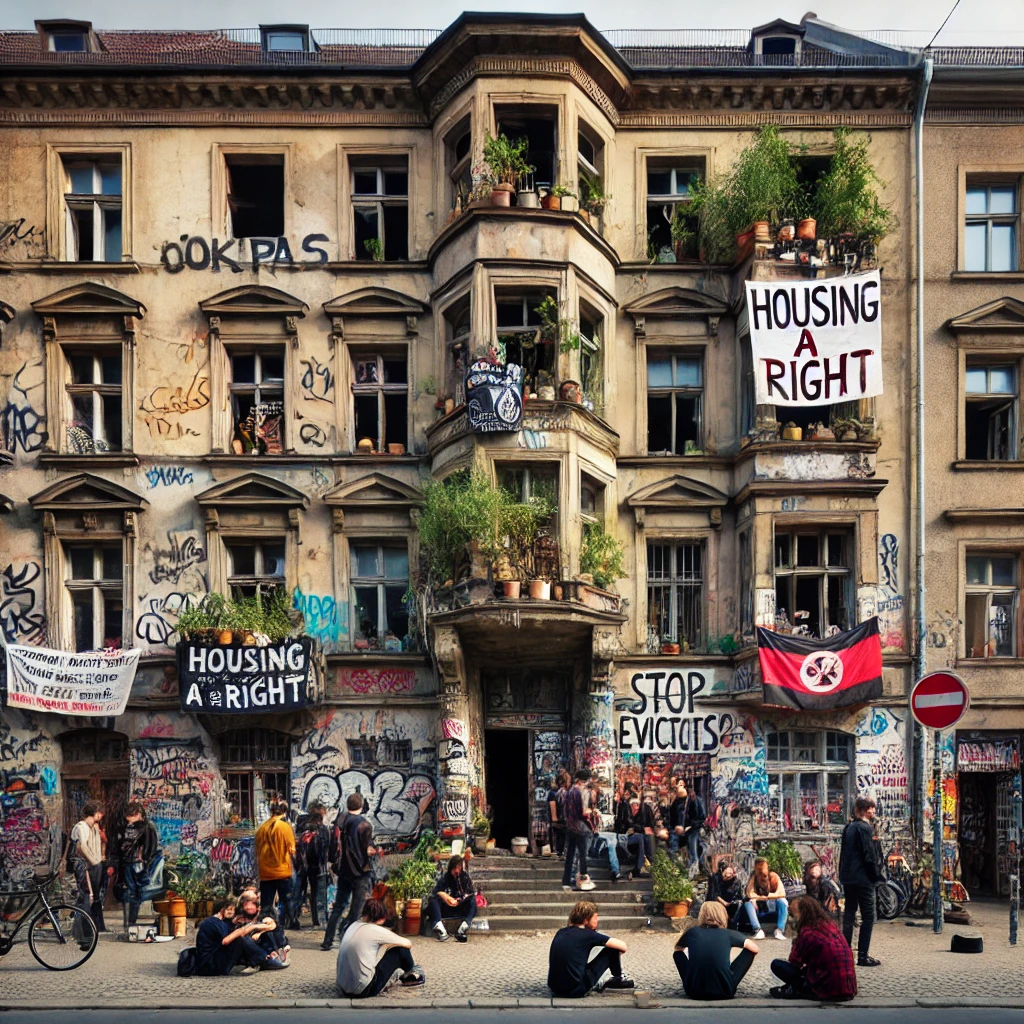Squatters (Okupas) in Spain
Squatters (Okupas) in Spain
Squatters (Okupas) in Spain
Squatters (Okupas) in Spain
1. Oktober 2024
Feedback: 0
If you’re looking into the real estate market in Spain, you will sooner or later come across the term “Okupas.” In Spain, this means squatters, and the issue is definitely a hot topic here. But don’t worry, we’ll explain what it’s all about, why this phenomenon is so widespread, and what you can do if you find yourself in such a situation.
- What are Okupas?
- Why Are There So Many Squatters in Spain?
- The Legal Side: What Does the Law Say?
- Why Do People Do This?
- Criminal Squatting: How Does It Work?
- Why Is It So Difficult to Combat Criminal Squatting?
- Politics and Society: How Is Spain Responding?
- A Look at Reality: Examples from Spain
- What Can You Do as a Property Owner?
- What Do These Agencies Do?
- Are These Agencies Legal?
- Conclusion: A Complex Issue Without Simple Solutions
What are Okupas?
Okupas are people who move into vacant properties without paying rent or having the owner’s permission. Sounds wild? It can be at times. The reasons why people become Okupas vary widely. Some have no other choice because they can’t afford rent, while others see it as a form of protest against the capitalist system or the lack of affordable housing.
Why Are There So Many Squatters in Spain?
Spain has many vacant properties—many of which have been empty since the 2008 financial crisis because they were taken over by banks. At the same time, many people are struggling with unemployment and rising rents. It’s no surprise that some take the plunge and move into an unused property. It might seem straightforward at first, but there are plenty of legal hurdles involved.
The Legal Side: What Does the Law Say?
The legal situation surrounding squatting in Spain is, to put it mildly, tricky. There is a distinction between occupying a primary residence and a vacant house:
◉ Primary Residence: If someone squats in your primary residence, you can call the police, who can often evict the squatters within 48 hours. However, if the squatters stay longer, it becomes more complicated, and you will need to resolve the issue through the courts.
◉ Vacant Properties: This is where it gets really tricky. Once squatters are inside and can prove they live there, it can take months or even years to evict them. And yes, that can be quite nerve-wracking.
Why Do People Do This?
There are many reasons why people become Okupas. In major cities like Madrid and Barcelona, rental prices have skyrocketed while a large number of apartments remain vacant. For many, it’s a protest against the injustice of the housing market. They say, “Why should these apartments remain empty while we end up on the street?” Other Okupas are simply in extreme situations and see no other option for having a roof over their heads.
On the other hand, there’s another side: the property owners, who often feel powerless while their properties are occupied. For these owners, it’s not just a financial burden; in fact, it’s also an emotional strain. Furthermore, the lengthy process only adds to their frustration and stress.
Criminal Squatting: How Does It Work?
Criminal squatting differs from typical Okupas, who usually act out of necessity. These criminal groups often occupy properties systematically and with calculated intentions. Here are some common patterns:
◉ Professional Squatters: There are criminal networks that target homes and apartments to occupy for profit. For example, they may demand money from the rightful owners to vacate the property. This practice is known as “squatter extortion” or “protection racketeering.”
◉ Renting Out Occupied Properties: In some cases, criminals squat in homes only to illegally rent them out to third parties who may not even realize the property is occupied. This way, the squatters profit from the illegal situation.
◉ Drug or Theft Criminality: Some criminal gangs use occupied properties as hiding places for drugs or stolen goods. These properties can also serve as bases for criminal activities, significantly affecting neighborhood safety.
Why Is It So Difficult to Combat Criminal Squatting?
The big problem is that criminal squatters exploit the Spanish legal system. As mentioned earlier, Spanish law regarding squatting is relatively complicated and often offers squatters a degree of protection, especially if the occupation has lasted a while.
Another factor is the separation between civil and criminal matters. Property owners often have to go through lengthy civil procedures to get their property back. In the meantime, criminal squatters have plenty of time to continue their illegal activities or even rent the property out further.
Politics and Society: How Is Spain Responding?
The discussion around Okupas divides Spanish society. On one side, there are those who demand harsher penalties and prioritize the protection of property owners. On the other side, there are groups that support the Okupas and highlight the urgent social issues leading to these occupations.
The Spanish government is trying to navigate the situation. There have already been legal reforms aimed at strengthening the protection of primary residences, as well as measures to promote social housing. Nevertheless, the issue remains controversial, and a real solution is not yet in sight.
A Look at Reality: Examples from Spain
One neighborhood that often makes headlines is El Raval in Barcelona. Here, Okupas have settled in vacant buildings and formed alternative communities. Some view this as a cool form of resistance against gentrification, while others see it as chaotic and dangerous.
Similar scenarios exist in Madrid. In some neighborhoods, Okupas have joined forces with community initiatives to fight against evictions. It shows that the issue is not black-and-white but has many gray areas.
What Can You Do as a Property Owner?
If you own property in Spain and don’t want it to be occupied by Okupas, there are a few things you can do:
◉ Monitoring: Cameras and alarm systems can be deterrents and quickly raise an alarm in case of emergency.
◉ Regular Checks: Regularly check on your property or hire someone to do so, so you can detect any occupations early.
◉ Legal Advice: Seek legal counsel in advance to be on the safe side.
◉ Insurance: A good insurance policy can minimize financial losses in the event of an occupation.
◉ House Sitting: In this arrangement, property owners hire a house sitter who stays in the property during their absence and takes care of it.
Additionally, in Spain, there are also specialized agencies specifically focused on removing squatters (Okupas) from properties. As a result, these agencies have become particularly appealing to property owners, especially those who are frustrated with the lengthy and often cumbersome legal processes for evicting squatters. Consequently, many property owners see these agencies as a faster and more efficient alternative to traditional legal routes.
What Do These Agencies Do?
These agencies offer various services tailored to the situation and severity of the occupation. Here are some typical approaches:
◉ Negotiations and Mediation: One approach many agencies take is to first negotiate peacefully with the Okupas. They often offer squatters financial compensation or help with moving to persuade them to leave the building voluntarily. This method is sometimes referred to as the “cash for keys” model, where the squatters receive a specific sum to vacate the property.
◉ Psychological Pressure: Some agencies employ psychological pressure to encourage the squatters to give up. This can involve constant presence, monitoring, or deliberately disturbing the squatters. However, these methods often tread into legal gray areas.
◉ Security Measures: Some go a step further and hire security personnel to control access to the building. This is intended to prevent the squatters from returning once they have left.
◉ Legal Support: These agencies also provide legal assistance and help owners navigate the often complex legal steps to expedite the eviction process.
Are These Agencies Legal?
The legality of this issue is not always straightforward. While most agencies try to operate within legal boundaries, some methods, especially psychological pressure or cutting off water and electricity, fall into legal gray areas. There are ongoing reports of agencies employing very questionable methods, which can lead to problems—for both the agencies themselves and the property owners who hire them.
Pros and Cons of Using Agencies
◉ Faster Solutions: Agencies can often act more quickly than the legal process, which can take months or even years in Spain.
◉ Stress Reduction: For owners stressed by the occupation, it can be a relief to hand over this challenging task to professionals.
◉ Versatile Approaches: They offer various methods, from negotiations to security measures, providing flexibility in solving the problem.
Cons
◉ Cost: These services are often not cheap. Depending on the complexity of the situation, costs can add up significantly.
◉ Legal Risks: If an agency employs questionable methods, the owner may also face legal issues. Therefore, it’s important to choose an agency that adheres to legal regulations.
◉ No Guaranteed Success: Even if the agencies operate professionally, there is no guarantee that the Okupas will leave the building immediately. Sometimes, a court process is still necessary.
Conclusion: A Complex Issue Without Simple Solutions
Squatters in Spain are a symptom of deeper social and economic problems in the country. It’s a difficult issue that needs to consider both the rights of property owners and the dire situations of the Okupas. Criminal squatting represents a darker side of the Okupa phenomenon in Spain, making the situation unbearable for both owners and neighbors while exacerbating an already difficult landscape. There’s no easy solution, but with legal reforms and a stronger focus on social housing, part of the problem could be addressed in the long term.
Until then, the topic remains hotly debated—both in politics and at taverns across Spain.
We hope these tips help you master your expat life even better! Do you have your own experiences or further recommendations on the topic of moving abroad? Feel free to leave us a comment! Share this post with others who could benefit from these tips, and stay tuned for more inspiration from life as an expat.
Your Steffi & Marius

Wir sind zwei deutsche Auswanderer und auf emigres-life nehmen wir Dich mit auf unsere Reise in ein neues Leben.
In unserem Projekt schwingt das Pendel meist in Richtung stressig oder chaotisch und weniger in Richtung tiefenentspannt.
Wenn du also wissen willst, in welches Fettnäpfchen wir als nächstes treten oder welche Hürden vor uns liegen und wie wir sie überwinden, dann bleib dran.
Nächster Blogpost
Gefährliche Lebensmittel für Hunde



 Pin it!
Pin it!

